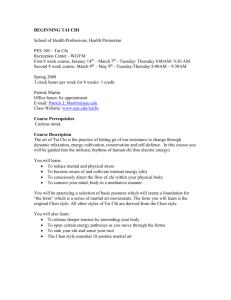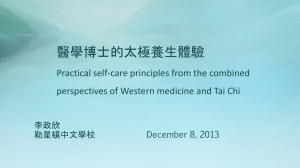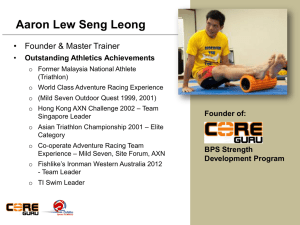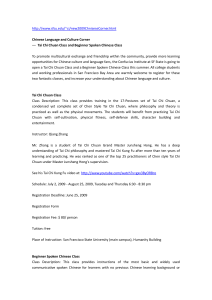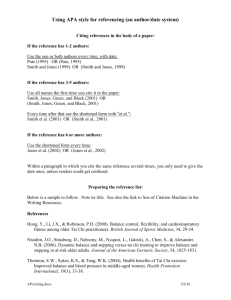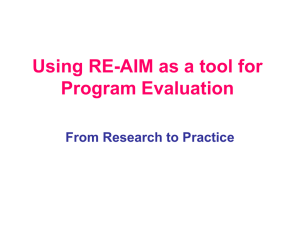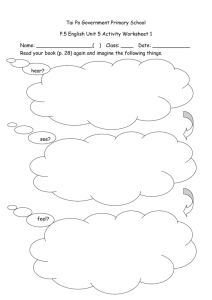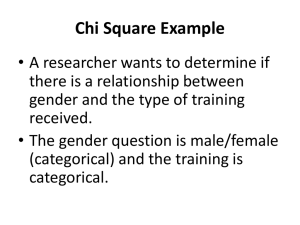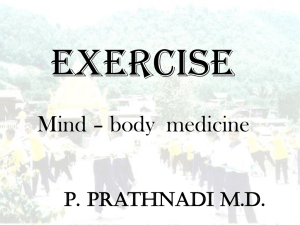Tim Prescott has been studying the martial arts for over thirty years
advertisement
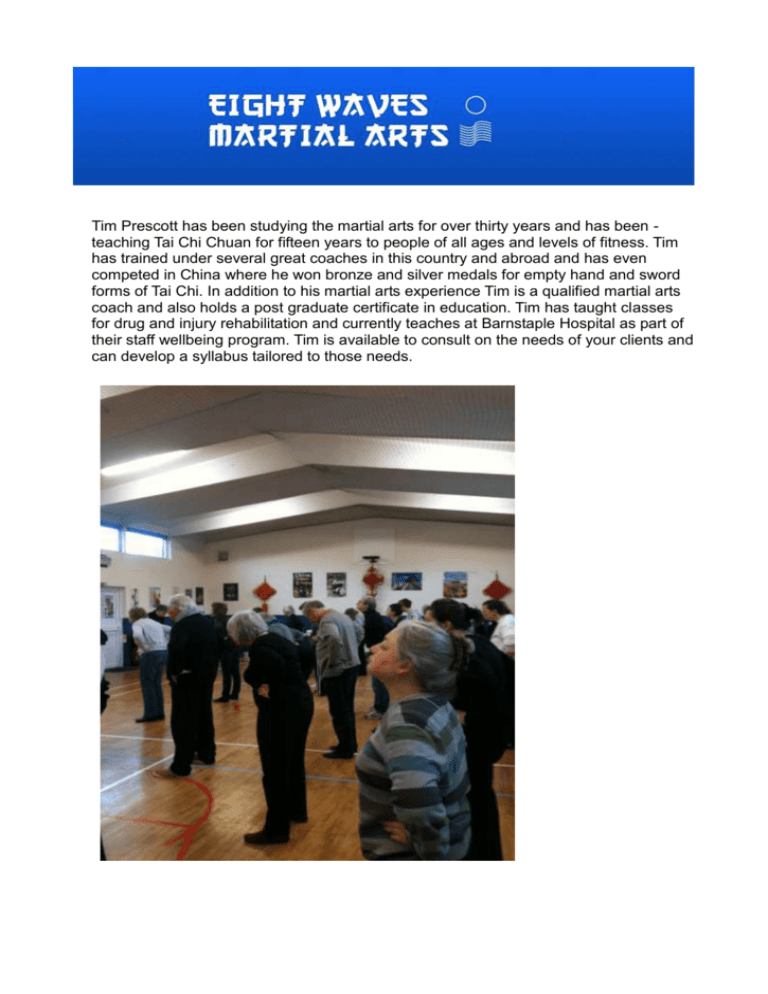
Tim Prescott has been studying the martial arts for over thirty years and has been teaching Tai Chi Chuan for fifteen years to people of all ages and levels of fitness. Tim has trained under several great coaches in this country and abroad and has even competed in China where he won bronze and silver medals for empty hand and sword forms of Tai Chi. In addition to his martial arts experience Tim is a qualified martial arts coach and also holds a post graduate certificate in education. Tim has taught classes for drug and injury rehabilitation and currently teaches at Barnstaple Hospital as part of their staff wellbeing program. Tim is available to consult on the needs of your clients and can develop a syllabus tailored to those needs. This is what others say about Tai Chi. Information taken from the NHS website All you need to know about tai chi, including the health benefits, the different styles of tai chi and getting started. What is tai chi? Tai chi, also called tai chi chuan, combines deep breathing and relaxation with slow and gentle movements. Originally developed as a martial art in 13th-century China, tai chi is today practised around the world as a health-promoting exercise. What are the health benefits of tai chi? While there's scope for more rigorous studies on tai chi's health benefits, studies have shown that tai chi can help people aged 65 and over to reduce stress, improve balance and general mobility, and increase muscle strength in the legs. Can tai chi help prevent having falls? Some research suggests tai chi can reduce the risk of falls among older adults who are at increased risk. However, more research is needed. Can tai chi help with arthritis? There is some evidence that tai chi can improve mobility in the ankle, hip and knee in people with rheumatoid arthritis (RH). However, it is still not known if tai chi can reduce pain in people with RH or improve their quality of life. Am I too old for tai chi? No, tai chi is commonly performed as a low-impact form of exercise, which means it won’t put much pressure on your bones and joints and most people should be able to do it. Is tai chi suitable for me? Get advice from your GP before starting tai chi if you have any health concerns or an existing health condition. You may need to take certain precautions if you’re pregnant, have a hernia, back pain or severe osteoporosis. Don't I need to be fit to do tai chi? No, tai chi is for everyone. It is ideal for inactive older people wanting to raise their activity levels gently and gradually. Also, many of the tai chi movements can even be adapted to people with a disability, including wheelchair users. Can I injure myself doing tai chi? Tai chi is essentially a gentle activity unlikely to cause injury if done correctly. The exercises involve lots of flowing, easy movements that don’t stress the joints or muscles. Tips on getting started It’s a good idea to watch a class or attend a free taster session before signing up for a course. If you have a medical condition, any health concerns or haven’t exercised for a long time, speak to your GP before you start tai chi. Are there different styles of tai chi? Yes, such as yang, chen and wu. Some teachers often practise a combination of styles. The main differences between the different tai chi styles are in the speed of movement and the way the body holds the postures. What’s the basic technique? Tai chi is characterised by its slow, graceful, continuous movements that are gentle on the joints and muscles. Done correctly, you'll find that the tai chi poses flow smoothly from one into another. Many movements are completed with bent knees in a squat-like position. Article From the Daily Telegraph.Privacy and coDatinOffers Tai Chi named as perfect exercise for the elderly Practising the ancient martial art of Tai Chi is so beneficial to elderly people’s health that it should be “the preferred mode of training”, according to scientists. Researchers found that older people who regularly performed the traditional Chinese “mind and body” technique were less likely to suffer high blood pressure and were physically stronger. They concluded that the improvement of heart function combined with increased muscular power meant that the martial art should be considered the preferred technique for elderly people to maintain good health. Tai Chi, which has grown in popularity throughout the world, is typified by slow, deliberate repetitive movements and is based on co-ordination and relaxation rather than muscular tension. It is believed that focusing the mind solely on the movements helps to bring about a state of mental calm and clarity. In the Hong Kong study, pulse measurements showed that Tai Chi specifically improved expansion and contraction of the arteries — known as arterial compliance, an important indicator of heart health — and increased knee muscle strength. A number of earlier studies have shown that strength training alone has been accompanied by a decline in arterial compliance. The findings were published online in the European Journal of Preventive Cardiology. The study involved 65 elderly subjects from Hong Kong, 29 recruited from local Tai Chi clubs who had each practised the technique for at least 90 minutes a week for three years, and 36 controls with no such experience. Initial results showed that the Tai Chi subjects were superior in almost all medical observations, including blood pressure, vascular resistance and pulse pressure. Measurements also showed that both large and small artery compliance was 40-44 per cent higher in the Tai Chi group. Additional analysis showed that the Tai Chi subjects had greater average muscle strength. The effect of Tai Chi training in lowering blood pressure has been documented previously. Dr William Tsang from the The Hong Kong Polytechnic University in Hong Kong, who led the research, said: “However this is the first study to investigate the possible effects of Tai Chi on arterial compliance by comparing older Tai Chi practitioners with non-practitioners similar in age and activity level. “The improvement in arterial compliance could have resulted from a combination of aerobic training, stretching, mental concentration and calm meditation during Tai Chi movement,” he said. Dr Tsang said the added appeal of Tai Chi was that it could be practised any time and anywhere without the constraints of equipment or a gymnasium. Please contact our coaches on 07889 798231 or 07933 875144 or visit our website WWW.eightwaves.co.uk email enquiries to info@eightwaves.co.uk
